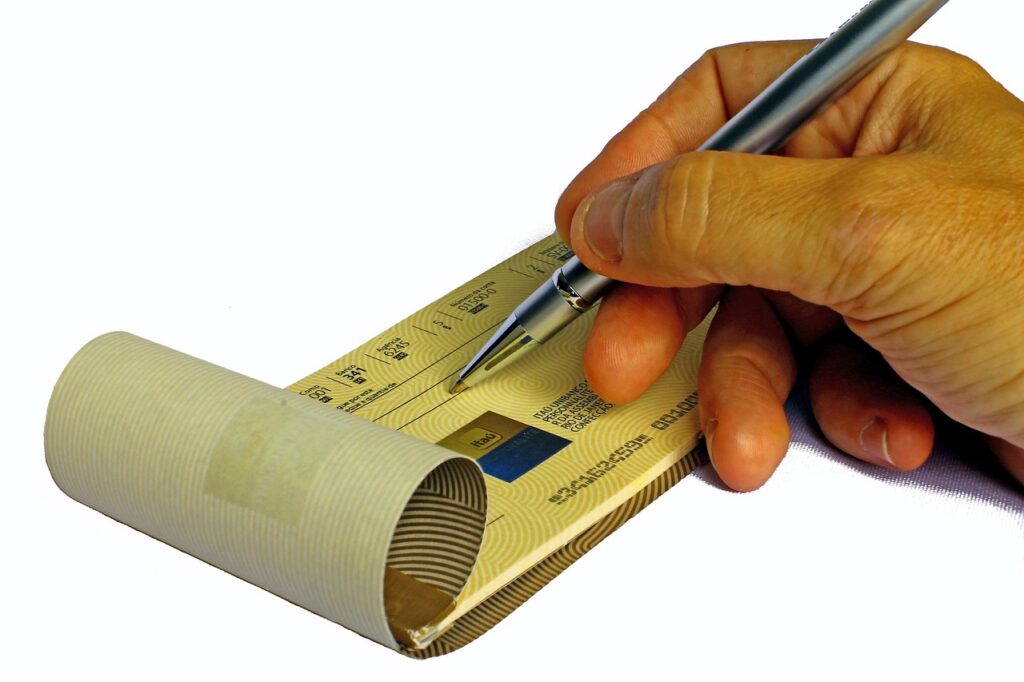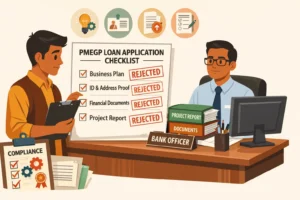In the fast-paced world of small businesses and MSMEs, cheques still play a vital role in payments—especially for large transactions. But what happens when a cheque is returned or a cheque bounce? For many MSME owners, this isn’t just a banking issue—it’s a legal, financial, and emotional nightmare.
Here’s a real story of my friend who runs a small MSME unit in Assam. A single bounced cheque resulted in a case filed from Delhi, and the consequences were far-reaching. This blog explains:
- The difference between cheque return and cheque bounce
- The legal and business implications
- Real examples from across India
- And how you, as an MSME owner, can avoid this trap
you may also like:Why You Should Never Max Out Your Credit Card Limit: My Experience with SBI and ICICI Credit Cards
Cheque Return vs Cheque Bounce – What’s the Difference?
1. Cheque Return
A cheque return means the bank didn’t process the cheque. This could be due to:
- Signature mismatch
- Stale date or post-dated cheque
- Account closed
- Damaged cheque
- Stop payment instructions
It is not a legal offence, but it does cause inconvenience.
2. Cheque Bounce
When a cheque is returned due to insufficient funds, it becomes a criminal offence under Section 138 of the Negotiable Instruments Act, 1881.
This can lead to:
- Legal notice
- Court case
- Fine up to double the cheque amount
- Imprisonment up to 2 years
you may also like to read: I Got an Unexpected SMS from My Bank — That’s How I Learned About the Positive Pay Confirmation System
Real-Life Example: My Friend’s MSME Nightmare
My friend, who owns a small factory in Assam, issued a post-dated cheque to a Delhi-based supplier. Due to a sudden cash flow crunch, the cheque bounced.
What followed was a disaster:
- The Delhi firm sent a legal notice
- A case was filed in delhi.
- My friend had to travel to Delhi for every court hearing
- He also had to pay a lawyer, manage hotel stays, and still run his business back in Assam
Imagine running a small business, and every few weeks you have to spend 4–5 days out of town, spend thousands on travel, and fight a criminal case just because of one missed payment!
Business Impact of Cheque Bounce
- Cash Flow Disruption
You lose trust from suppliers and buyers. Vendors may start asking for advance payments. - Legal and Criminal Liability
Court cases can stretch for 2–4 years. It’s draining both mentally and financially. - Reputation Damage
Word spreads in your local and business community. Your credibility as a business takes a hit. - Creditworthiness Falls
Once your cheque bounces, banks and lenders become cautious. Future funding gets tough.
Key Learning: What MSMEs Should Do
✅ 1. Always Maintain Sufficient Balance
Avoid issuing cheques unless you’re 100% sure about funds. Keep buffer funds, especially before weekends and holidays.
✅ 2. Prefer Digital Payments
RTGS, NEFT, UPI are faster, traceable, and avoid bounce-related problems.
✅ 3. Use PDCs (Post-Dated Cheques) Cautiously
If giving post-dated cheques, make sure your payment cycles align properly.
✅ 4. Communicate Early
If you’re about to miss a payment, inform the party before the cheque date. Rescheduling is better than a legal case.
✅ 5. Hire a Local Advocate
In case things go wrong, you must immediately consult a legal expert to draft a proper response to any notice.
✅ 6. Respond to Legal Notices on Time
If you get a notice under Section 138, you have just 15 days to make the payment. Don’t miss this window.
📌 Cheque Bounce Cases Across India – A Quick Look
- A business in Mumbai faced 4 years of litigation over a bounced cheque of just ₹1.5 lakh. Final cost: ₹5 lakh including lawyers.
- A supplier in Bangalore got full recovery within 10 days by responding promptly and settling the dispute before court.
✍️ Final Words
For MSMEs, every transaction matters—and so does every mistake. A bounced cheque might feel like a small issue, but it can drag you into courtrooms, drain your money, kill your time, and damage your hard-earned reputation.
My friend’s case from Assam is a lesson for all small business owners:
Never take cheques lightly. Always plan your finances, and be cautious with post-dated payments.
One mistake can cost years of peace.





